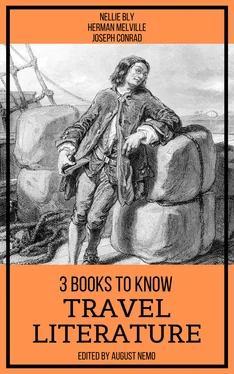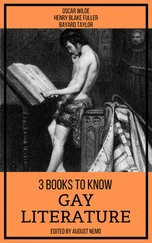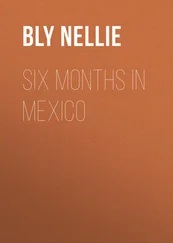"I had to wait in the station for ten days—an eternity. I lived in a hut in the yard, but to be out of the chaos I would sometimes get into the accountant's office. It was built of horizontal planks, and so badly put together that, as he bent over his high desk, he was barred from neck to heels with narrow strips of sunlight. There was no need to open the big shutter to see. It was hot there too; big flies buzzed fiendishly, and did not sting, but stabbed. I sat generally on the floor, while, of faultless appearance (and even slightly scented), perching on a high stool, he wrote, he wrote. Sometimes he stood up for exercise. When a truckle-bed with a sick man (some invalided agent from up-country) was put in there, he exhibited a gentle annoyance. 'The groans of this sick person,' he said, 'distract my attention. And without that it is extremely difficult to guard against clerical errors in this climate.'
"One day he remarked, without lifting his head, 'In the interior you will no doubt meet Mr. Kurtz.' On my asking who Mr. Kurtz was, he said he was a first-class agent; and seeing my disappointment at this information, he added slowly, laying down his pen, 'He is a very remarkable person.' Further questions elicited from him that Mr. Kurtz was at present in charge of a trading post, a very important one, in the true ivory-country, at 'the very bottom of there. Sends in as much ivory as all the others put together. . . .' He began to write again. The sick man was too ill to groan. The flies buzzed in a great peace.
"Suddenly there was a growing murmur of voices and a great tramping of feet. A caravan had come in. A violent babble of uncouth sounds burst out on the other side of the planks. All the carriers were speaking together, and in the midst of the uproar the lamentable voice of the chief agent was heard 'giving it up' tearfully for the twentieth time that day. . . . He rose slowly. 'What a frightful row,' he said. He crossed the room gently to look at the sick man, and returning, said to me, 'He does not hear.' 'What! Dead?' I asked, startled. 'No, not yet,' he answered, with great composure. Then, alluding with a toss of the head to the tumult in the station-yard, 'When one has got to make correct entries, one comes to hate those savages—hate them to the death.' He remained thoughtful for a moment. 'When you see Mr. Kurtz,' he went on, 'tell him from me that everything here'—he glanced at the desk—'is very satisfactory. I don't like to write to him—with those messengers of ours you never know who may get hold of your letter—at that Central Station.' He stared at me for a moment with his mild, bulging eyes. 'Oh, he will go far, very far,' he began again. 'He will be a somebody in the Administration before long. They, above—the Council in Europe, you know—mean him to be.'
"He turned to his work. The noise outside had ceased, and presently in going out I stopped at the door. In the steady buzz of flies the homeward-bound agent was lying flushed and insensible; the other, bent over his books, was making correct entries of perfectly correct transactions; and fifty feet below the doorstep I could see the still tree-tops of the grove of death.
"Next day I left that station at last, with a caravan of sixty men, for a two-hundred-mile tramp.
"No use telling you much about that. Paths, paths, everywhere; a stamped-in network of paths spreading over the empty land, through long grass, through burnt grass, through thickets, down and up chilly ravines, up and down stony hills ablaze with heat; and a solitude, a solitude, nobody, not a hut. The population had cleared out a long time ago. Well, if a lot of mysterious niggers armed with all kinds of fearful weapons suddenly took to traveling on the road between Deal and Gravesend, catching the yokels right and left to carry heavy loads for them, I fancy every farm and cottage thereabouts would get empty very soon. Only here the dwellings were gone too. Still I passed through several abandoned villages. There's something pathetically childish in the ruins of grass walls. Day after day, with the stamp and shuffle of sixty pair of bare feet behind me, each pair under a 60-lb. load. Camp, cook, sleep, strike camp, march. Now and then a carrier dead in harness, at rest in the long grass near the path, with an empty water-gourd and his long staff lying by his side. A great silence around and above. Perhaps on some quiet night the tremor of far-off drums, sinking, swelling, a tremor vast, faint; a sound weird, appealing, suggestive, and wild—and perhaps with as profound a meaning as the sound of bells in a Christian country. Once a white man in an unbuttoned uniform, camping on the path with an armed escort of lank Zanzibaris, very hospitable and festive—not to say drunk. Was looking after the upkeep of the road, he declared. Can't say I saw any road or any upkeep, unless the body of a middle-aged negro, with a bullet-hole in the forehead, upon which I absolutely stumbled three miles farther on, may be considered as a permanent improvement. I had a white companion too, not a bad chap, but rather too fleshy and with the exasperating habit of fainting on the hot hillsides, miles away from the least bit of shade and water. Annoying, you know, to hold your own coat like a parasol over a man's head while he is coming-to. I couldn't help asking him once what he meant by coming there at all. 'To make money, of course. What do you think?' he said, scornfully. Then he got fever, and had to be carried in a hammock slung under a pole. As he weighed sixteen stone I had no end of rows with the carriers. They jibbed, ran away, sneaked off with their loads in the night—quite a mutiny. So, one evening, I made a speech in English with gestures, not one of which was lost to the sixty pairs of eyes before me, and the next morning I started the hammock off in front all right. An hour afterwards I came upon the whole concern wrecked in a bush—man, hammock, groans, blankets, horrors. The heavy pole had skinned his poor nose. He was very anxious for me to kill somebody, but there wasn't the shadow of a carrier near. I remembered the old doctor,—'It would be interesting for science to watch the mental changes of individuals, on the spot.' I felt I was becoming scientifically interesting. However, all that is to no purpose. On the fifteenth day I came in sight of the big river again, and hobbled into the Central Station. It was on a back water surrounded by scrub and forest, with a pretty border of smelly mud on one side, and on the three others inclosed by a crazy fence of rushes. A neglected gap was all the gate it had, and the first glance at the place was enough to let you see the flabby devil was running that show. White men with long staves in their hands appeared languidly from amongst the buildings, strolling up to take a look at me, and then retired out of sight somewhere. One of them, a stout, excitable chap with black mustaches, informed me with great volubility and many digressions, as soon as I told him who I was, that my steamer was at the bottom of the river. I was thunderstruck. What, how, why? Oh, it was 'all right.' The 'manager himself' was there. All quite correct. 'Everybody had behaved splendidly! splendidly!'—'you must,' he said in agitation, 'go and see the general manager at once. He is waiting!'
"I did not see the real significance of that wreck at once. I fancy I see it now, but I am not sure—not at all. Certainly the affair was too stupid—when I think of it—to be altogether natural. Still. . . . But at the moment it presented itself simply as a confounded nuisance. The steamer was sunk. They had started two days before in a sudden hurry up the river with the manager on board, in charge of some volunteer skipper, and before they had been out three hours they tore the bottom out of her on stones, and she sank near the south bank. I asked myself what I was to do there, now my boat was lost. As a matter of fact, I had plenty to do in fishing my command out of the river. I had to set about it the very next day. That, and the repairs when I brought the pieces to the station, took some months.
Читать дальше












